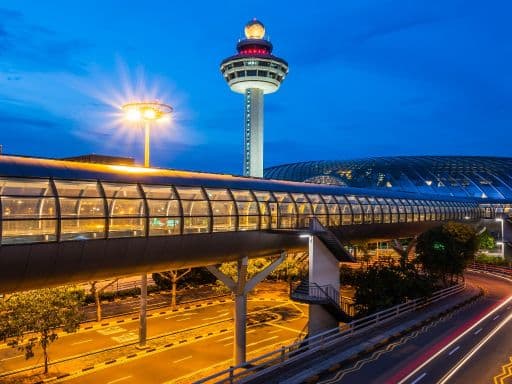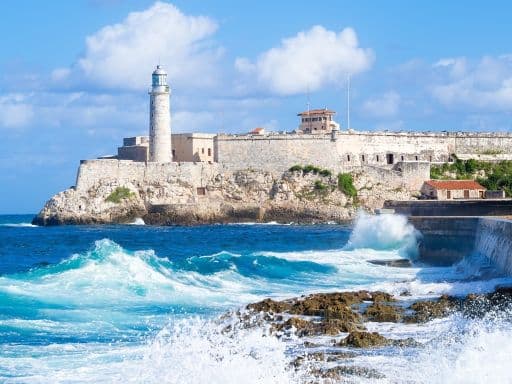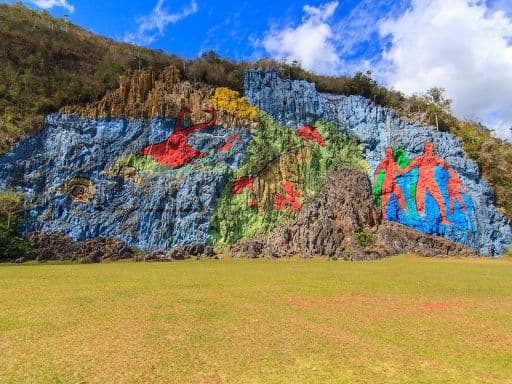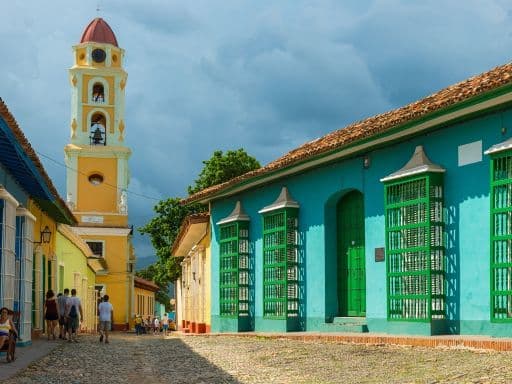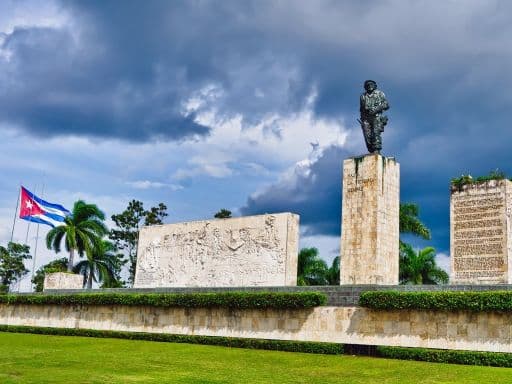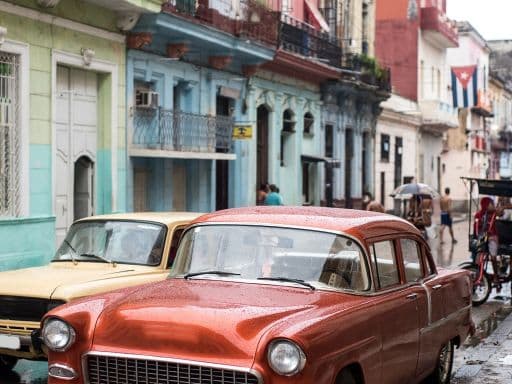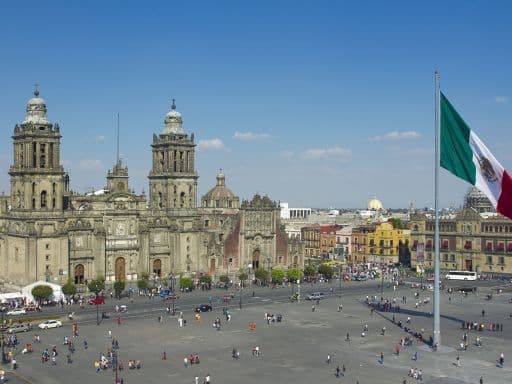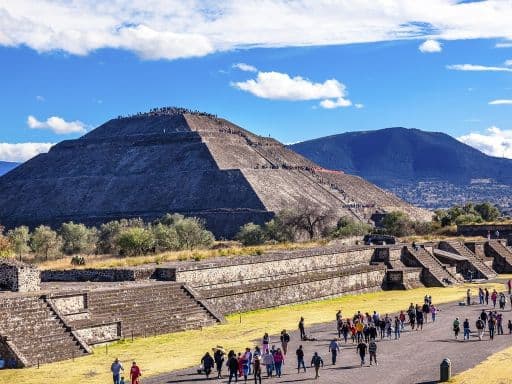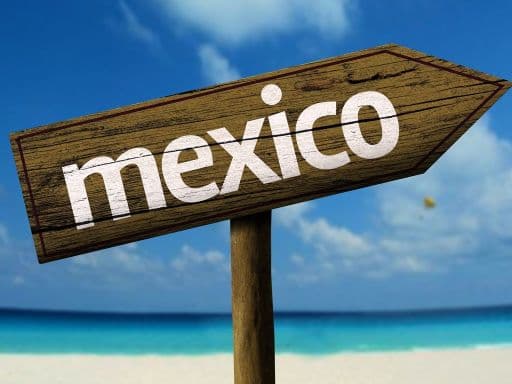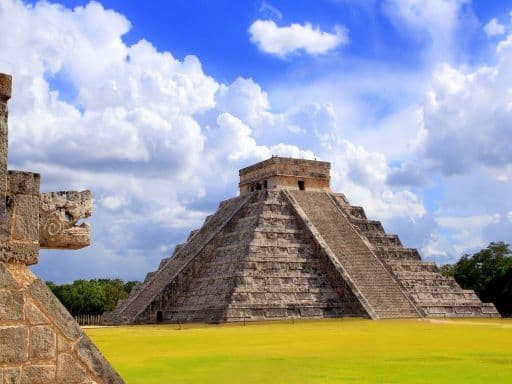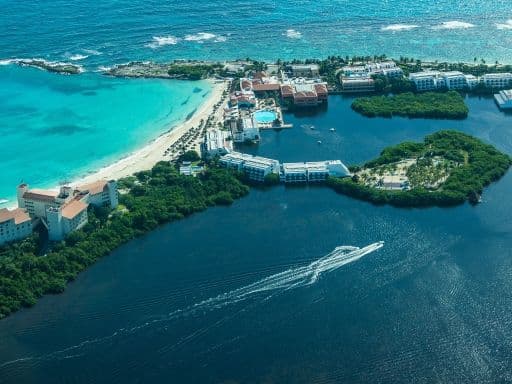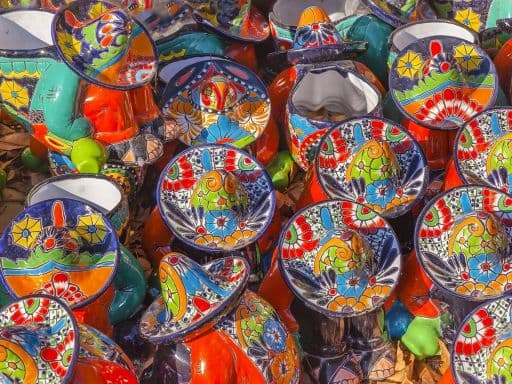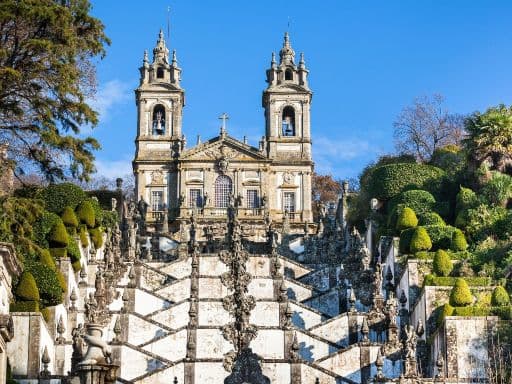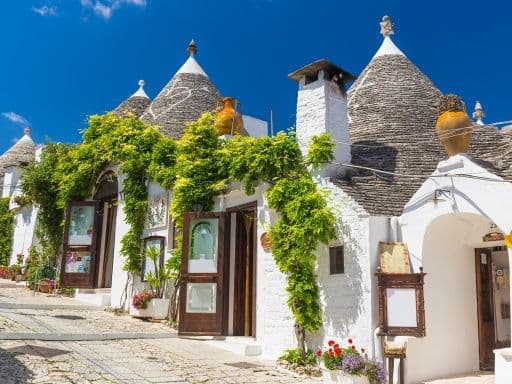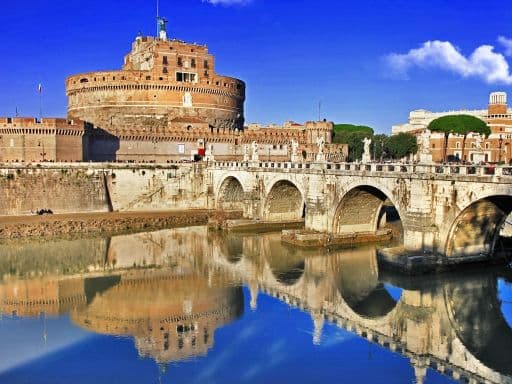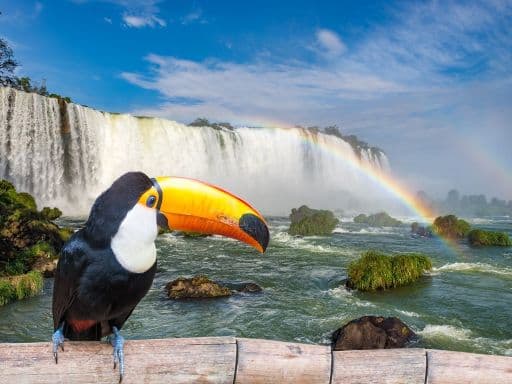TRIP HIGHLIGHTS
- Most comprehensive itinerary. No optional tours.
- Classic car tour around Havana
- Visit Che Guevara Museum in Santa Clara
- Learn about the making of a cigar
- Tour stunning Mogote Valley
- Visit North America’s most enigmatic and impressive archaeological site – Teotihuacan
- Enjoy a mole cooking class
- Admire the Atlantean figures of Tula
- Swim in a cenote
- Visit Chichen Itza, Mexico’s most famous landmark
- Carefully curated hotels
ITINERARY
On arrival, visit the neighbourhood of Vieja Habana with historic sites such as Palace of the Revolution, Plaza de la Revolution and Plaza de la Cathedral with its asymmetrical Cathedral de San Cristobal de la Habana.
Admire the colonial architecture of the Gran Teatro del al Habana and National Capitol of Cuba. See the famous Floridita Bar and the La Bodeguita del Medio, both often frequented by famous personalities. See Havana’s oldest square, Plaza de Armas and travel along a stretch of Malecon Promenade.
Drive along the scenic “Ruta del Tobaco’ to lush Pinar Del Rio Province. Enjoy stunning views of the Mogote Valley, famous for its pin-cushion shaped hills, tobacco fields and vegetation. Visit a tobacco plantation and watch a cigar rolling demonstration. Continue to Vinales Valley National Park, a World Cultural Landscape.
Visit The Mural of Prehistory to see a 120m rock painting on the wall of a hillock. Enjoy a relaxing boat ride on the Cueva del Indio River.
Travel south to one of Cuba’s most quaint cities, Cienfuegoes, where we can see the restored plaza ‘Parque Jose Marti’ and the impressive Moorish palace of the ‘De Valle’ family.
The beautiful route from Cienfuegoes to Trinidad lies between the Caribbean Sea and the Escambray Mountains.
Trinidad, Cuba’s oldest and most enchanting ‘outdoor museum’, presents an indelible history of the country.
Exploring the town of Trinidad, a UNESCO World Heritage Site, is like stepping back in time. The beautifully restored buildings and cobblestone streets in the city center imbue a quaint colonial feel. Much of the architecture dates from the 17th to the 19th century when Trinidad prospered from both the sugar and slave trades.
Continue to Santa Clara, a vibrant university town and the famous site of the last guerrilla battle led by Che Guevara in 1958.
Visit the mausoleum and monument of Che Guevara. Etched on the bronze statue in Plaza de la Revolucion is his final letter to Fidel Castro. Adjacent is the Museo Historica de la Revolucion. See also the site of the final battle between Che Cuevera and the Batista troops.
Return to Havana.
Enjoy a ride in a classic car around Havana before we proceed to the airport for our flight to Mexico City, the capital of Mexico.
This morning, we proceed to Chapultepec Forest, one of Mexico City’s most iconic and significant green spaces covering over 670 hectares. This is also where we find the National Museum of Anthropology.
The museum is world renowned for its extensive collection of pre-Colombian artifacts and archaeological finds from various indigenous civilizations including the Aztec, Maya, Olmec, Toltec and Zapotec. Highlights include the Stone of the Sun, the colossal heads of the Olmec civilisation and the reconstructions of Mayan and Aztec temples.
In the afternoon, visit the neighbourhood of Coyoacan, which means ‘place of coyotes’ in Nahuatl, originally an independent village with colonial-era architecture. The main square is a bustling hub of activity with street vendors, musicians and artisans adding to its lively atmosphere.
Embark on an excursion to the mysterious Teotihuacan, also known as the ‘City of the Gods’. Built in 300BC as the centre piece of an enormous city, it is one of the most enigmatic and impressive archaeological sites in North America.
The energetic can climb the Pyramids of the Sun and Moon for fantastic views of the ancient city. These monumental structures are among the largest in Mesoamerica and are notable for their precise construction and alignment with astronomical phenomena.
To cool off, treat ourselves to a fun and delicious experience of a guacamole-making class. Gather the essential ingredients and learn how to prepare them. The instructor will demonstrate different ways which guacamole can be presented and serve. The best part of any cooking class is always when we get to taste everything that we have prepared.
Return to the city and visit the historic Plaza Santo Domingo. Nearby is the Zocalo where we find the Metropolitan Cathedral, the largest in Mexico. Stroll along Madero Street and admire meticulously resorted houses, restaurants, cafes etc.
Drive to Tula in the neighbouring state of Hidalgo. Visit the Tula Grande, the capital of the ancient Toltec civilisation. The archaeological site features impressive ruins, temples, palaces and ball courts. The most famous features are the Atlantean figures which depict warrior figures adorned with elaborate headdresses and weapons.
Continue to the Arcos del Sitio, an aqueduct built during the 16th century and a UNESCO World Heritage Site. It consists of a series of massive stone arches and played a crucial role in sustaining colonial settlements and supporting agricultural development in the semi-arid environment.
Nestled in the foothills of Sierra de Tepoztlan Mountain range is the Pueblo Magico (Magic Town), Tepotzotlan. The stunning National Museum of Viceroyalty is a treasure trove of historical artifacts and a testament to the rich heritage of Mexico.
Embark on a short flight to Merida, the vibrant capital of the Yucatan Peninsula. Bask in the city’s rich Mayan and colonial heritage.
Admire the colonial architecture from the 17th & 18th century around Plaza Grande. See imposing mansions which gave the city the nickname of the ‘White City’ from the use of white limestone and paint along Paleo Montejo.
This morning, visit Chichen-Itza, the second most visited archaeological site of Mexico. The historical site includes buildings such as the Observatory, the jaguars Temple, the Sacred Well, the Ball Court and most importantly, the Pyramid of Kukulkan. This pyramid measures 24m high and is one of the new Seven Wonders of the World.
One of the best ways to cool down is a visit to a cenote. The Yucatan Peninsula has an estimated ten thousand of these water-filled sinkholes naturally formed by the collapse of limestones. Cenotes are important to the Mayans as they are their main water source.
Price & Departure


